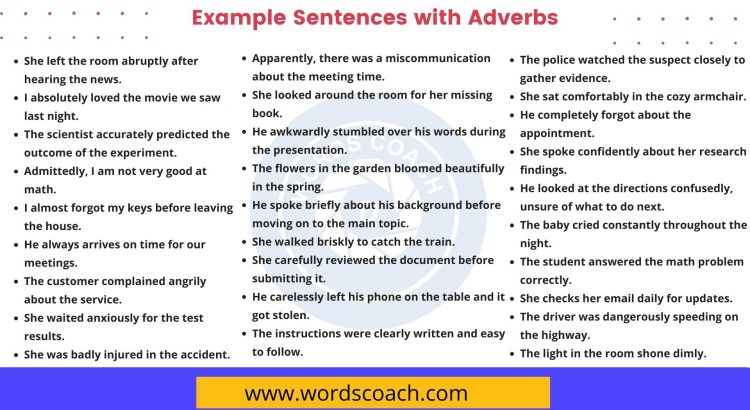An adverb is a part of speech that modifies or describes verbs, adjectives, and other adverbs. It adds more information to a sentence, telling how, when, where, how often, and to what extent something happens. Adverbs can make a sentence more interesting and descriptive and can help to clarify the meaning of the sentence.
Here are 20 examples of adverbs:
- Abruptly: She left the room abruptly after hearing the news.
- Absolutely: I absolutely loved the movie we saw last night.
- Accurately: The scientist accurately predicted the outcome of the experiment.
- Admittedly: Admittedly, I am not very good at math.
- Almost: I almost forgot my keys before leaving the house.
- Always: He always arrives on time for our meetings.
- Angrily: The customer complained angrily about the service.
- Anxiously: She waited anxiously for the test results.
- Apparently: Apparently, there was a miscommunication about the meeting time.
- Around: She looked around the room for her missing book.
- Awkwardly: He awkwardly stumbled over his words during the presentation.
- Badly: She was badly injured in the accident.
- Beautifully: The flowers in the garden bloomed beautifully in the spring.
- Briefly: He spoke briefly about his background before moving on to the main topic.
- Briskly: She walked briskly to catch the train.
- Carefully: She carefully reviewed the document before submitting it.
- Carelessly: He carelessly left his phone on the table and it got stolen.
- Clearly: The instructions were clearly written and easy to follow.
- Closely: The police watched the suspect closely to gather evidence.
- Comfortably: She sat comfortably in the cozy armchair.
- Completely: He completely forgot about the appointment.

